Disclosure: Meeple Mountain received a free copy of this product in exchange for an honest, unbiased review. This review is not intended to be an endorsement.
12 Chip Trick. What a simple, fascinating, bewitching game for three players. Each of you gets four poker chips, numbered between 1 and 12. You get two red chips, which number 4-9, and two blue chips, which cover 1-3 and 10-12.
It’s a trick-taking game. The leader picks one chip to play. The other two players choose whichever chip they want. The high number wins. The winner chooses one of the three chips to score, placing it faceup on the table in front of them. The other two players, in clockwise order, pick one of the remaining chips to add back into their hand. This process continues until one of the three players has scored four chips.
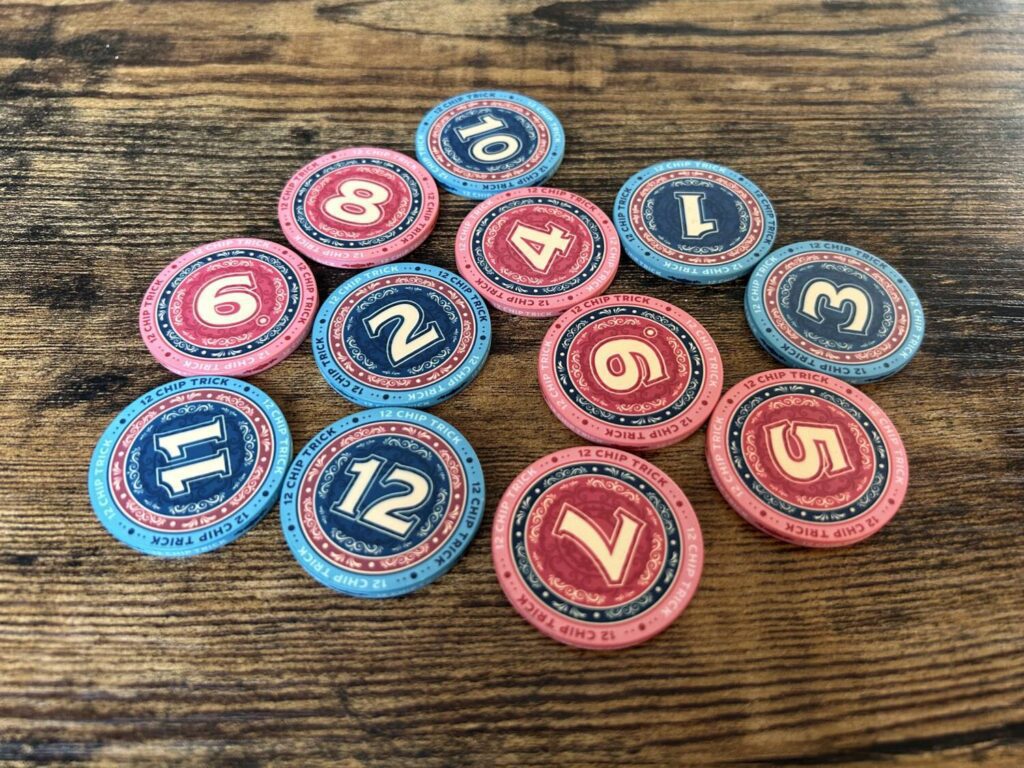
At that point, all chips are laid on the table and scored. There are two versions of the end rule here: Either the winner is the player with the highest score below 21, which is remarkably hard to pull off, or the winner is the player with the highest score after all scores above 21 have been halved. Either works, they just carry different implications for decisions over the course of the game.
Oh, and there’s one wrinkle: If any of the chips in the trick are red when it’s your turn to choose a chip to take, you have to take a red one. It’s hard to get away with hoarding the 1, 2, and 3. Everyone else can stop you if they’re paying any attention at all.
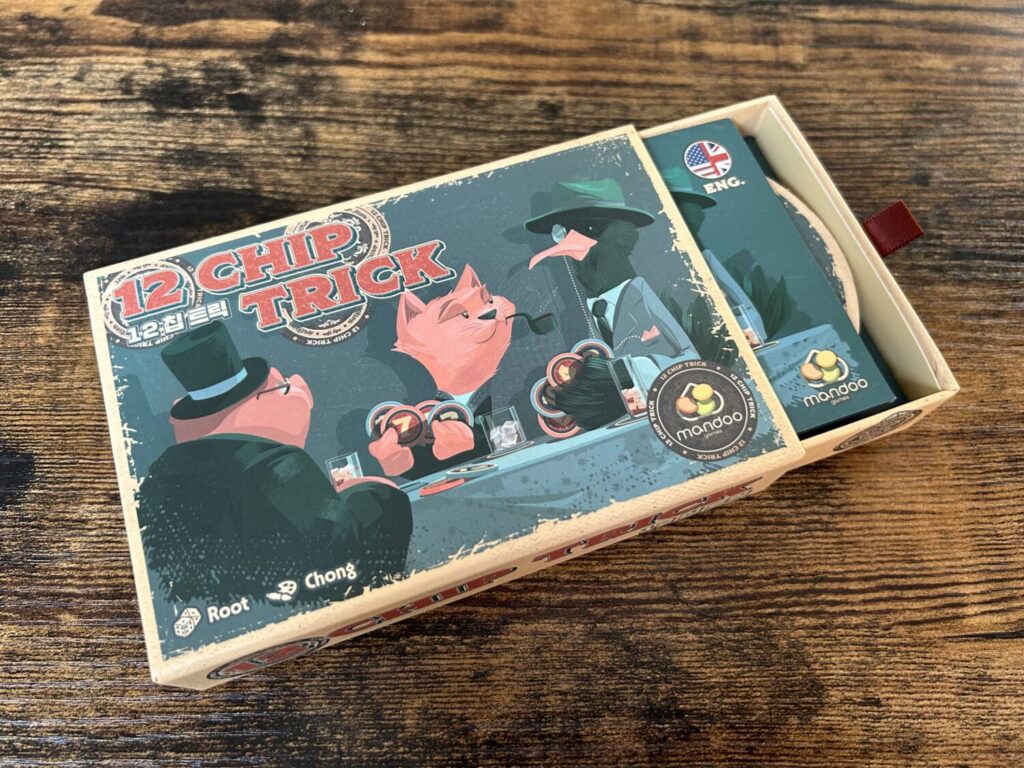
What You Gonna Do When the Chips Are Down?
It’s entirely possible that all of 12 Chip Trick’s brilliance—and there is absolutely brilliance here—lies in the choice of materials. I have asked myself more than once, in the midst of a tense round, how I would feel if it were a card game instead. I am sure I would like it much less. You would lose the satisfying clack of a chip chucked into the middle of the table. You wouldn’t get to nest your hand in the well between your thumb and index finger. You’d lose the effortlessness of picking a chip up off the table. Imagine doing the end of round reclamation process with cards? A nightmare. Kudos to designer Root for the idea to replace cards with chips in the first place, and to publisher Mandoo games for knowing a good thing when they see it.
Regrets, I Have a Few, but Then Again,
I have yet to have a game of 12 Chip Trick last more than two or three rounds. Though it’s meant to be a race to three wins, none of my willing victims have gotten anywhere close to the number of rounds required for such a thing to happen. We have traditionally tapped out at First to Two. That does suggest that the rules as written play out for longer than the game can sustain, which is a problem. Games should try to avoid outstaying their welcome.
Having said that, I’ve noticed something interesting. I have played 12 Chip Trick with no fewer than three different versions of the end of round scoring rules. Two of them are in the manual. The third, or rather the first when considered in order of my experience, came about from missing a crucial rule in the manual. I still don’t have a strong preference for any of them, despite each of them having a pretty profound impact on how you approach the game.
That’s weird, right? That feels important. There’s something to investigate there.
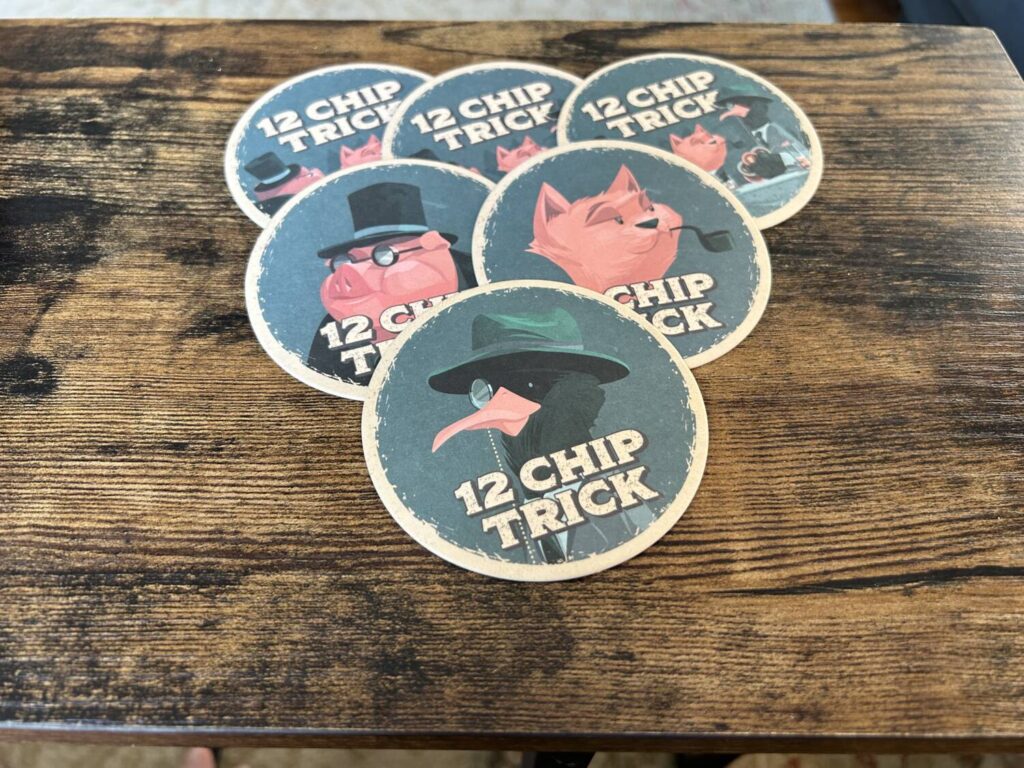
Every game of 12 Chip Trick that I’ve played has ended after two or three hasty rounds. Every game I’ve played, the players involved have vocally expressed enjoyment and even adoration for what we were playing. And, crucially, nobody pays any attention to who wins. People have to be reminded to add up their scores.
That all suggests to me that the very experience of the game is its own reward. It is competitive. Every turn is tense, and every decision matters. If you are confident in your ability to predict human behavior and your capacity for mathing out permutations, there’s a lot to enjoy. If you’re not confident in your ability to predict human behavior or your capacity for mathing out permutations, that honestly might make it even better. You want to do well. But as soon as you’ve finished with the decision space, it lets you go.
I quite like that, especially from a microgame. The box is already small enough, and handsome enough, that I’m inclined to take it everywhere. It has certainly lived in my bag for the last week. But I could remove the 12 chips, which take up practically no space whatsoever, and break them out any time I and two friends have five or ten minutes to kill. I’m a competitive man, but I love a game that doesn’t ever come to feel like the winning is all there is.
12 Chip Trick is beguiling and wondrous, even if it isn’t “perfect,” whatever that means. It never loses sight of what games are really about: laughing as your friend squirms, agonizing over which chip to toss into the middle of the table.
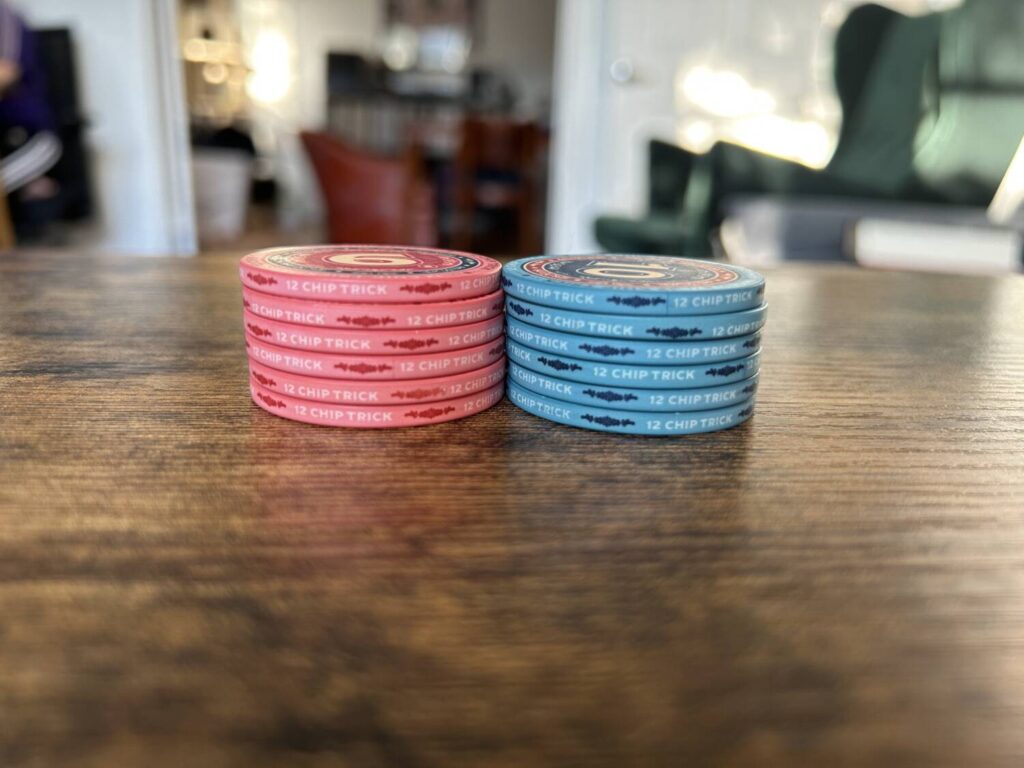


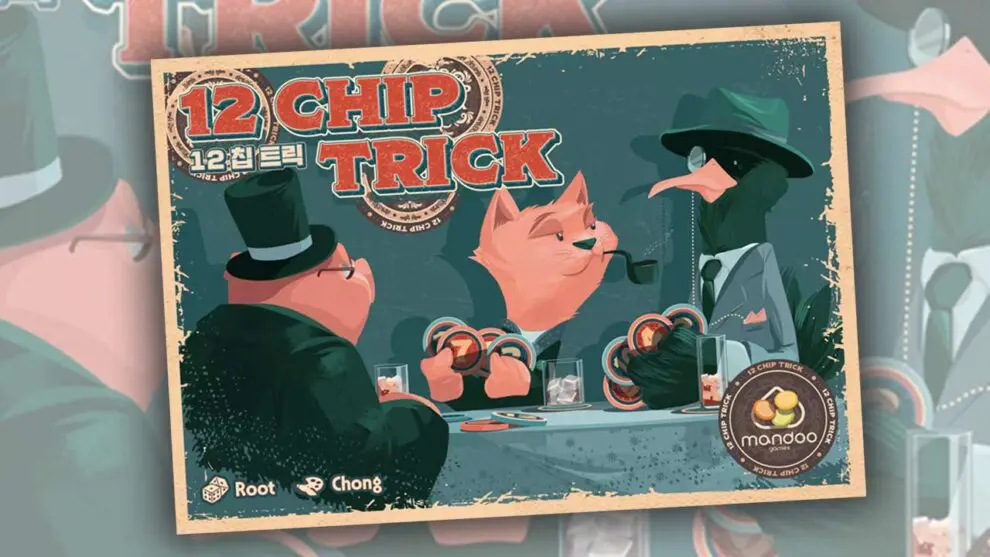








Hi, Andrew. Found your nice article while search for the box after playing on BGA. I am similarly intrigued, and began ruminating on alternative scoring methods and win conditions. One that occurred to me is: earning a bonus ‘win’ for hitting exactly 21 (making the as-written goal score of 3 more fun, perhaps). What do you think?